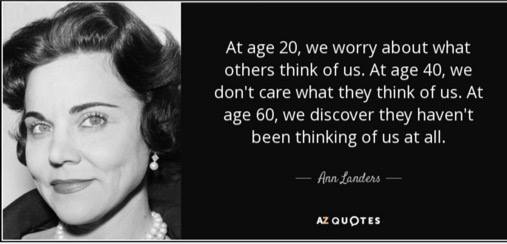Plain and simple, conformity and social proof meld to form the Bandwagon Effect – the likelihood that people will like something just because they believe that many others like and support it. We human beings do this with beliefs also. If many other people believe something, we are more likely to believe the same thing to be a part of our desired social group. This is especially so if others share the same information that influenced those who are ‘already on the bandwagon.’
The association of this bias doesn’t relate to politics by any mistake; the term finds its origins in it. Dan Rice was a popular circus performer during the 19th Century, and he quite literally used a bandwagon to draw an eager crowd. He was known to wear an Uncle Sam beard, and Zachary Taylor sought him out in order to ride on his bandwagon, as did many other politicians. Taylor gave Rice the honorary title of colonel when seeking candidacy as the US President in 1886
Yet again, we have another cognitive bias that melds liking with social proof, creating pressure for individuals to conform to group norms. Lack of conformity, as most people can attest from discussions of politics, brings with it social and relationship consequences. (How many people have lost friends over whether or not they support Donald Trump?) The pressure to conform can create a strong bias to ignore evidence that challenges the prevailing popular opinion of the population. It’s often easier to cave into popular opinion than to stand as a dissident.
We see the bandwagon effect on national election days when people on the West Coast who observe the early polling data and voting trends on the East Coast to arrive at a decision for their own vote. If one candidate seems to be carrying weight in numbers, people may choose to ‘jump on the bandwagon’ with other voters, believing that their vote will be more significant if they vote along with the prevailing contender.
While this bandwagon effect can have a significant effect on an election, it can show people up to be fickle, too. When information which is often inaccurate changes, the bandwagon can also lose riders. For this reason, the word ‘fragile’ often pops up in the discussion of this common cognitive bias. The new catch phrase, ‘fear of missing out’ with the acronym of FOMO can also play into this bias when there is a strong social element with lots of excitement and anxiety attached to a popular belief or a choice. Rather than expanding choice, FOMO actually limits choice and free thought by making only one choice acceptable among peers.
Doing your own research and avoiding “fake news” or news as entertainment can help decrease the likelihood of falling for the bandwagon effect. Honestly studying as much as you can about an issue or a candidate (or a point of theology) to broaden the base of knowledge from which you draw upon to decide your opinion on a matter helps. While any human being can turn into a wildcard by choosing a course of action or offering an opinion that is unexpected, thinking through matters for yourself helps diminish the power of the bandwagon.
Remember that conformity is often overrated. When we use it as a shortcut to save us time and energy, we run the risk of adopting opinions with which we really don’t concur. After exiting a high demand religious system, making such choices without relying on leadership in the group or even in any social group becomes a rite of passage of healing. Making your own decisions for the reasons you believe helps to set you free and sets you apart from the old group norm.
Further Reading:
- DevelopGoodHabits.com’s article What is FOMO?
- Gilovich, Griffin, and Kahneman’s Heuristics and Biases
- One of the affordable books on Cognitive Bias at Amazon.com
- Cialdini’s Influence: The Psychology of Persuasion
Cynthia Mullen Kunsman is a nurse (BSN), naturopath (ND) and seminary graduate (MMin) with a wide variety of training and over 20 years of clinical experience. She has used her training in Complementary and Alternative Medicine as a lecturer and liaison to professional scientific and medical groups, in both academic and traditional clinical healthcare settings. She also completed additional studies in the field of thought reform, hypnotherapy for pain management, and Post Traumatic Stress Disorder (PTSD) that is often associated with cultic group involvement. Her nursing experience ranges from intensive care, the training of critical care nurses, hospice care, case management and quality management, though she currently limits her practice to forensic medical record review and evaluation. Most of her current professional efforts concern the study of manipulative and coercive evangelical Christian groups and the recovery process from both thought reform and PTSD.
She blogs at Under Much Grace and Redeeming Dinah.
Read more by Cindy Kunsman
If I’m Never Ready, I Can at Least be Wise
Stay in touch! Like No Longer Quivering on Facebook:
If this is your first time visiting NLQ please read our Welcome page and our Comment Policy! Commenting here means you agree to abide by our policies.
Copyright notice: If you use any content from NLQ, including any of our research or Quoting Quiverfull quotes, please give us credit and a link back to this site. All original content is owned by No Longer Quivering and Patheos.com
Read our hate mail at Jerks 4 Jesus
Check out today’s NLQ News at NLQ Newspaper
Contact NLQ at [email protected]













